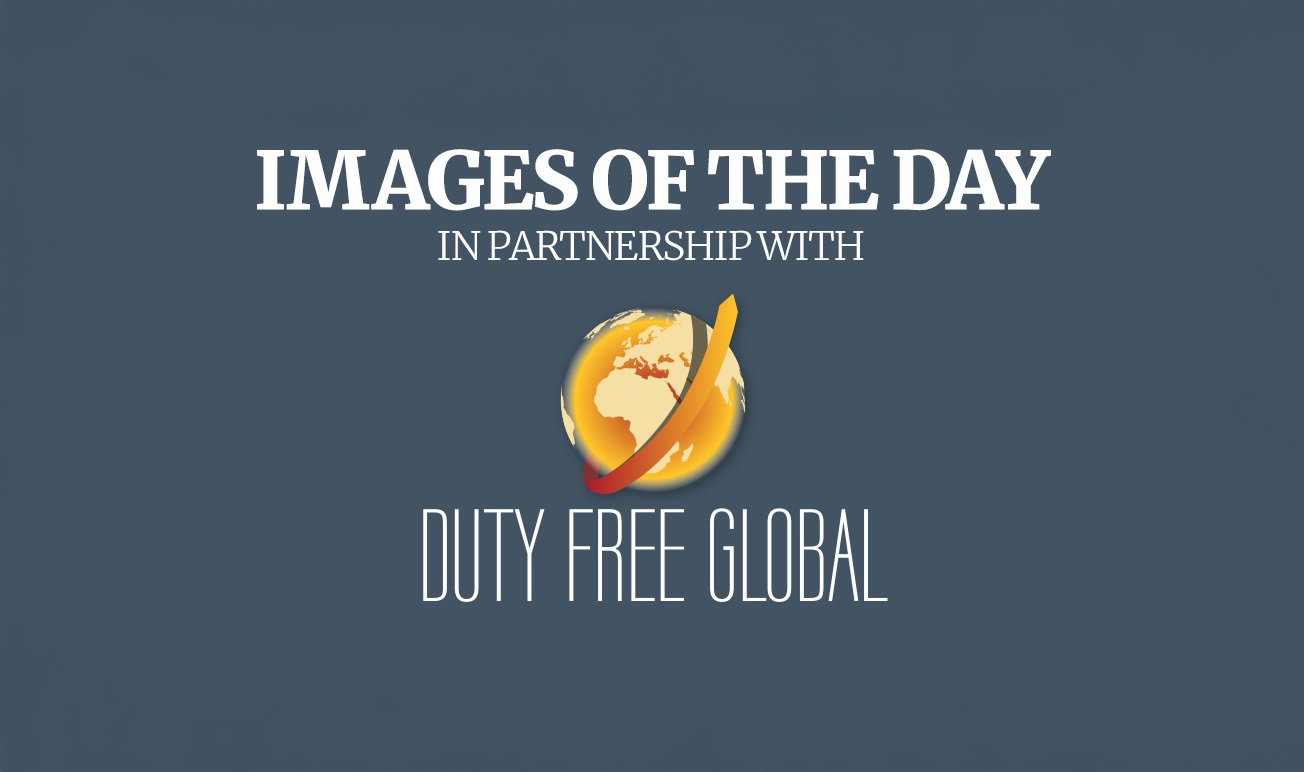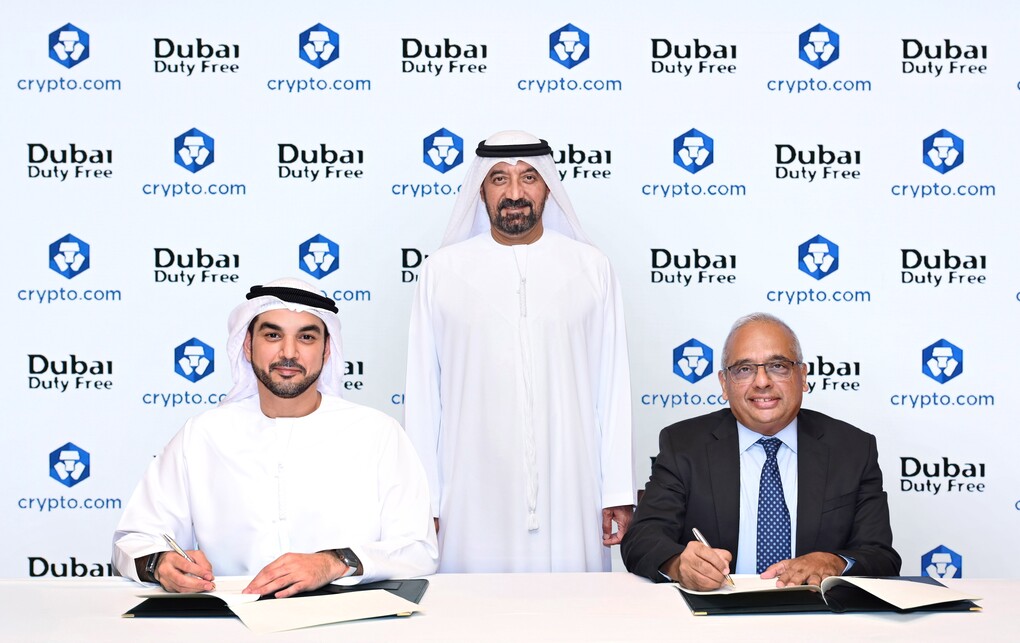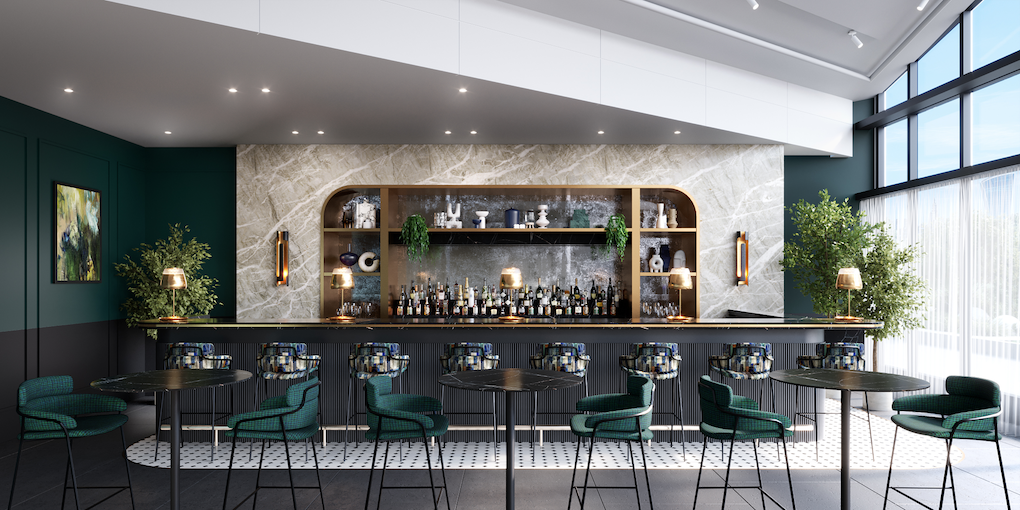SOUTH KOREA. Travel retailers continue to assess the duty free opportunity at Incheon International Airport, with a major tender for the business scheduled for later this year. Ahn Sang Joon, formerly Incheon International Airport Corporation’s (IAAC) Director Airside Concession Team until 2015 and now an independent consultant, assesses the key talking points around what is potentially one of the world’s biggest duty free bids. Note: A Korean version follows below.
A stifled recovery
The impact of COVID-19 on Korea’s main gateway has been more severe than at other airports in the country due to Incheon’s dependence on international flights. In 2019 around 98% of the 72 million passengers served were international.
After 26 months of restrictions, a return to some form of normality began in June after the government lifted lockdown and obligatory quarantine rules. Incheon is expected to return to around 50% of 2019 traffic levels this year. However daily passenger numbers in the Summer peak weeks reached only around 62,000 compared to the expected 85,000.
The key factor that adds appeal to this tender race is that the contract period may be up to 20 years (including a basic ten-year concession plus two five-year extension options).
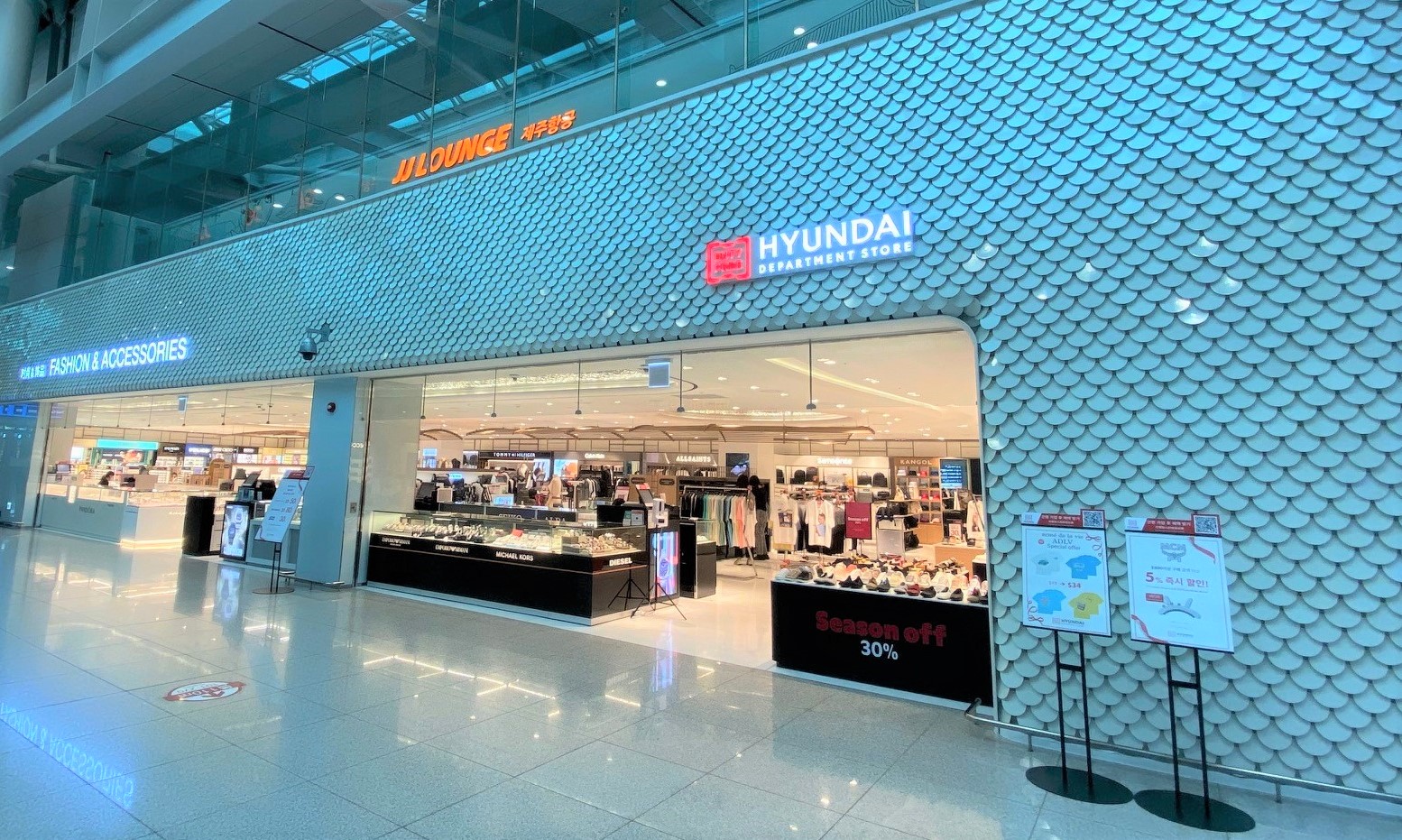
The surge of new COVID-19 variants, the increasingly strong Dollar exchange rates against the Korean Won, and the rise of fuel prices are among the hurdles to consumer confidence. Together they represent a difficult combination facing Korea’s duty free players today. It is against this backdrop that the proposed T1 tender will take place.
Timing
While local media speculated that the planned Incheon duty free tender would be announced in the first week of September, the schedule has not yet been fixed, The Moodie Davitt Report can confirm. Time is tight, given that 80% of contracts at the airport only run until year-end.
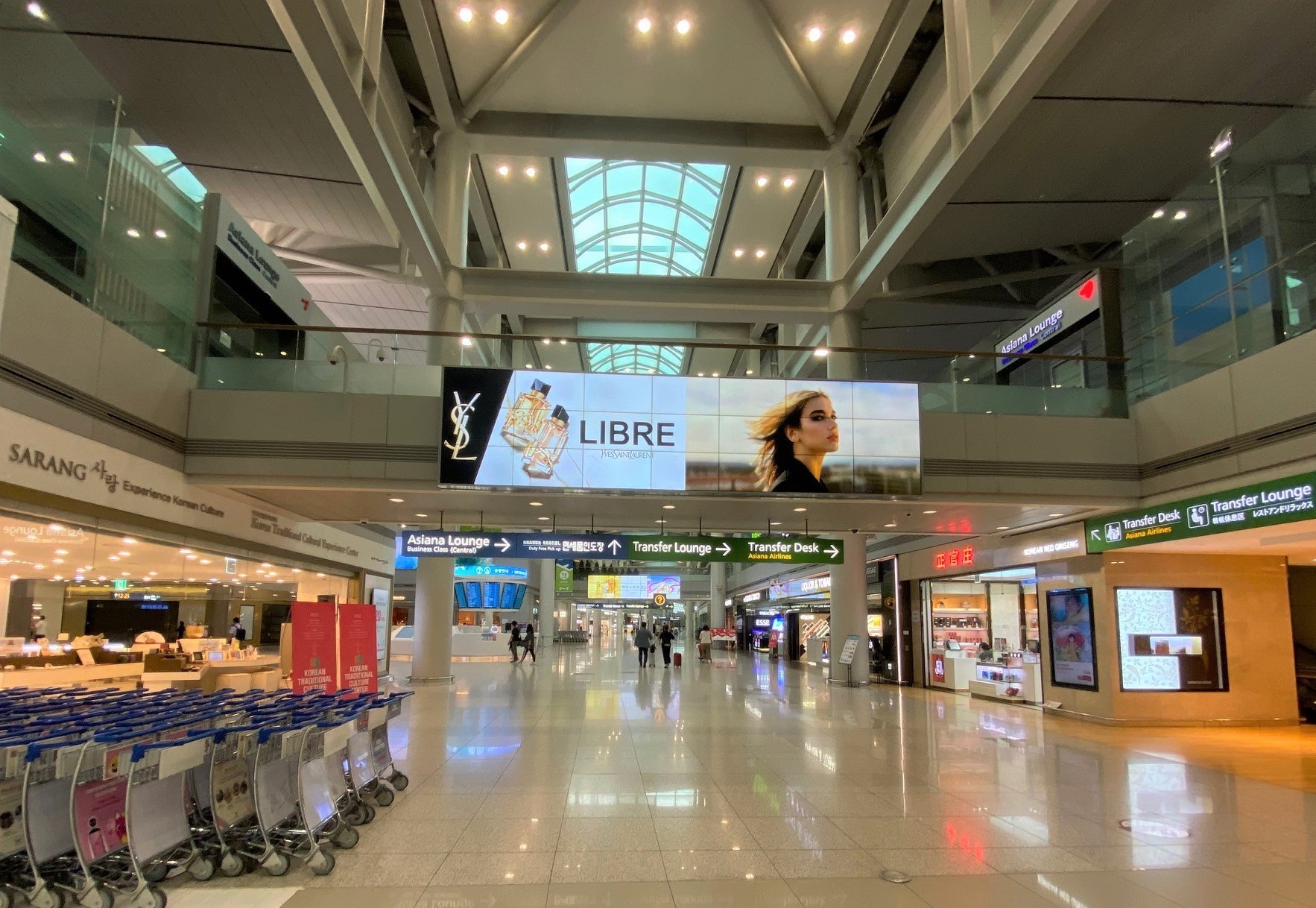
Despite the tough trading conditions – and critical absence of Chinese travellers – existing duty free operators in Korea are paying close attention to ensure they are competitive at this traditionally vital location.
Currently it seems highly likely that the packages will be grouped by terminal. This would give a retailer the exclusive business rights over a category within a certain terminal.
The key factor that adds appeal to this tender race is that the contract period may be up to 20 years (including a basic ten-year concession plus two five-year extension options). This has excited much interest among potential bidders who await a final decision by airport management on timing and structure. Most informed observers expect a tender launch by November or December.
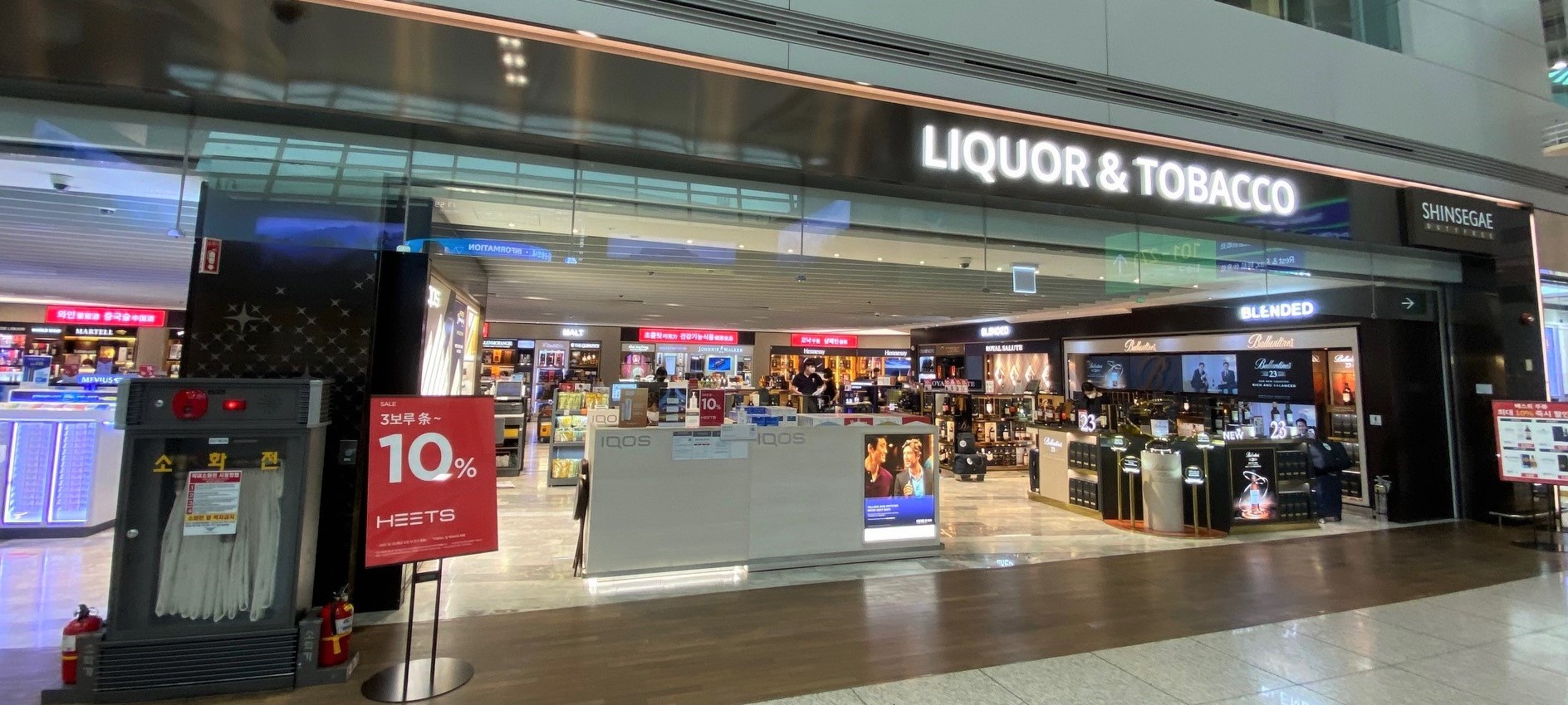
Packaging the tender
Setting favourable conditions for bidders will be vital to boost interest in this tender. Currently, category exclusivity is favoured over multiple master concessions; so for example The Shilla Duty Free dominates P&C; Lotte Duty Free has the prime liquor & tobacco locations; and luxury boutiques and other categories are managed by Shinsegae Duty Free and Hyundai Department Store Duty Free.
The question for IIAC with the upcoming tender is whether to confirm category exclusivity or location exclusivity. For example, a specific operator could dominate a terminal across all categories, or the business rights might be awarded across multiple terminals in the same category.

Operators prefer to have exclusivity in a specific location/terminal to build their negotiating power with brands. If multiple retailers can manage the same category within a single terminal, those negotiations become more difficult and retail price competition becomes a likely challenge.
IIAC has been reviewing multiple options for the tender packages and discussed them with the relevant authorities. Currently it seems highly likely that the packages will be grouped by terminal. This would give a retailer the exclusive business rights over a category within a certain terminal. The airport company will hope that it can therefore receive a higher bid price from the eventual winner and that the bidder can support this through enhanced negotiation power with the brands.
A scheme for duty free arrivals pick-up is to be implemented. Travellers can buy from the duty free shops in departures or online and pick it up upon return to the arrivals zone.
Alternatives include category exclusivity across the terminals (Company A sells the same category across the terminals, company B sells a different category across the terminals). While this might create a more heated bidding price – good for the airport – it carries the risk of generating monopoly issues within the airport.
For now, category exclusivity within the same terminal looks the most likely outcome; whether this would extend to both T1 and T2 is in question.
Trading factors
Since COVID-19 began, the airport has lost more than 90% of its duty free sales volume. Although all players were hit hard, SMEs (small and medium enterprises) were hit even harder than the large corporates which had some downtown and online business to fall back on.
Factors to weigh up include the updated inbound duty free allowance, which has increased from US$600 to US$800 (with a doubling of the liquor allowance to two bottles within that allowance). Secondly, as noted above, the licence period is set to be extended from a maximum of seven years to 20 years for large corporates.
Third, China remains out of the international travel market, a situation unlikely to change until sometime next year. The recovery of popular travel destinations such as Japan and Southeast Asian countries is slowly coming back while eased quarantine and COVID-19 testing requirements between Korea and Japan will be announced soon. Once Japan opens up, passenger traffic growth should accelerate. Other frequent short-haul travel markets will also return.
Fourth, the airport’s online duty free portal and operation will become a more relevant factor for bidders. Agreement is almost concluded between the airport company and relevant authorities on a ‘smart duty free’ system.
Technically, travellers will be able to purchase duty free products before they come to the airport and pick them up before flying. How effective the scheme will be once implemented is unclear.
Fifth, a scheme for duty free arrivals pick-up is to be implemented. Travellers can buy from the duty free shops in departures or online and pick it up upon return to the arrivals zone.
This would mean travellers do not need to carry the items abroad and take them back to Korea. But it has also prompted complaints from SMEs who say it then becomes more difficult to compete against the large corporates in terms of SKU ranges and prices. Many of these SMEs do not operate online shops.
Challenges for the winners
As the impact of COVID-19 on travel retail and tourism continues, retailers face the challenge of how to appeal to customers who have now become used to shopping in competing channels such as cross-border or online speciality platforms.
The strong dollar rate (already US$1 = KRW1,350, with fears locally that this could reach KRW1,400 or higher) also slashes retailers’ price advantage against the domestic market. Therefore maintaining what was the world’s highest duty free SPP (sales per person) of US$150 and ensuring the attractiveness of the travel retail channel are major tasks that require careful handling.
The airport company, duty free operators and authorities will need to collaborate to overcome weak consumer confidence, the challenge of rising interest rates and commodity prices.
More than anything else though, the biggest challenge for all parties is to find a way to challenge for and win the tender itself.
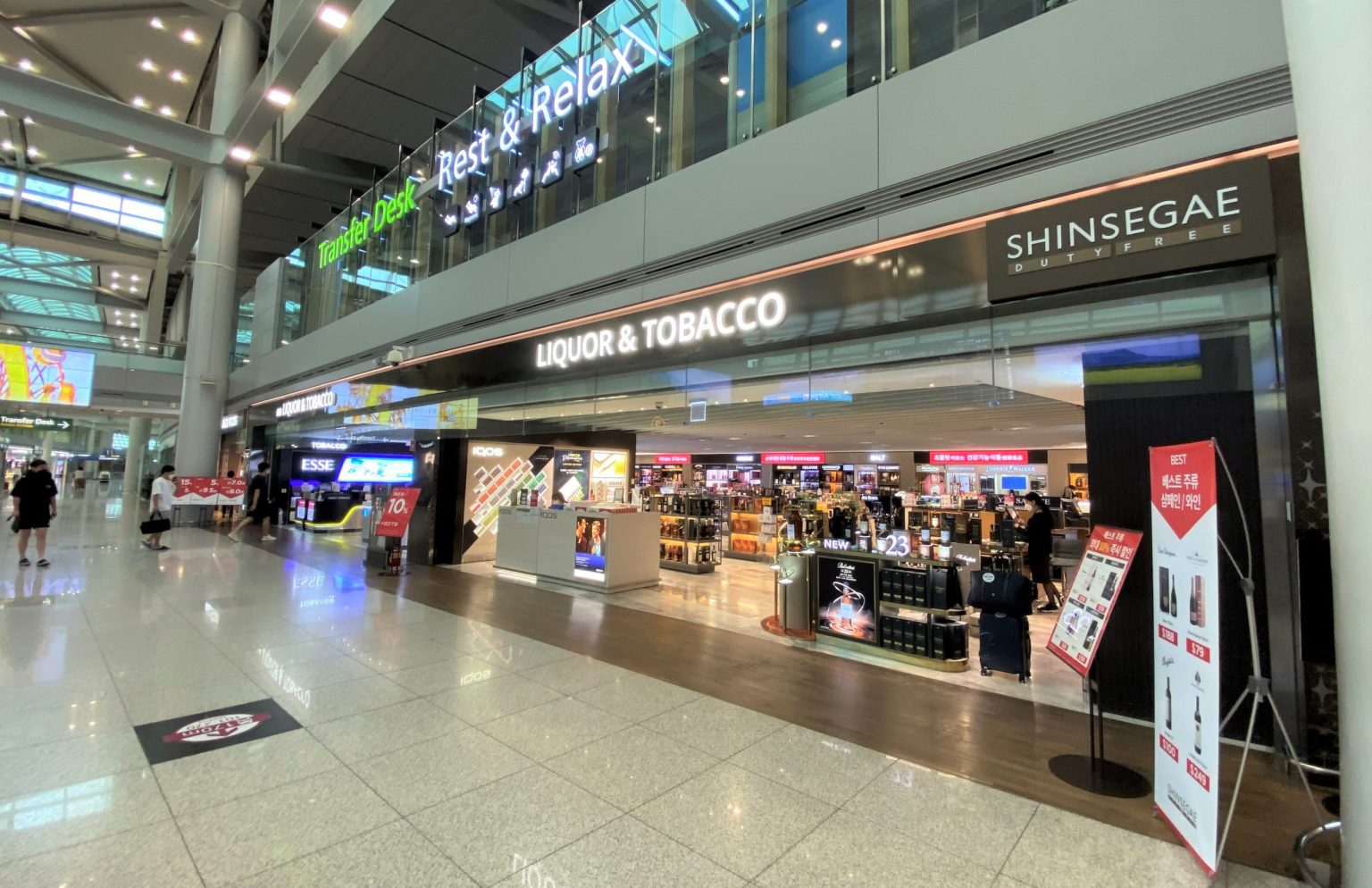
Note: The Moodie Davitt Report is the industry’s most popular channel for launching commercial proposals and for publishing the results. If you wish to promote an Expression of Interest, Request for Proposals or full tender process for any sector of airport or other travel-related infrastructure revenues, simply e-mail Martin Moodie at Martin@MoodieDavittReport.com.
We have a variety of options that will ensure you reach the widest, most high-quality concessionaire/retailer/operator base in the industry – globally and immediately.
Similarly, The Moodie Davitt Report is the only international business intelligence service and industry media to cover all airport or other travel-related consumer services, revenue-generating and otherwise. We embrace all commercial revenues, including duty free and other retail, food & beverage, property, passenger lounges, hotels, car parking, hospital and other medical facilities, the Internet, advertising and related revenue streams.
Please send relevant material, including images, to Martin Moodie at Martin@MoodieDavittReport.com for instant, quality global coverage.
2조 사업권을 확보하는 방법
-향후 인천공항 면세점 입찰 관전 포인트-
코로나19가 한국의 관문공항에 미치는 영향은 국제선 의존도가 높아 다른 공항보다 더 크다. 2019년 기준으로 7,200만 명의 이용객 중 약 98%가 국제선 여행객이었습니다.
정부가 26개월만인 2022년 6월에 국제선 운항제한과 검역제한 해제 이후 올해는 2019년 항공시장 회복의 약 50% 수준을 회복할 것으로 예상했었음에도 불구하고 하계 성수기의 일일 이용객 수는 예상치 85,000명에 비해 62,000명 안팎에 그쳤습니다.
새로운 변종 바이러스의 출현, 달러 및 환율 강세, 항공유 가격 상승은 한국 면세 산업이 극복해야 할 장애물입니다.
여기에 올해 인천공항입찰도 면세사업자들의 관심사중 하나입니다. MoodieDavitt Report는 트레블 리테일 분야에서 세계 최대 입찰 중 하나를 바라보는 흥미로운 관점을 제시합니다.
입찰시기는
현재 공항 면세 운영 계약의 80%가 올해 말까지인 점을 감안하면 이미 입찰이 지연된 것으로 보입니다. 여러 언론이 새로운 입찰이 9월 첫째 주에 발표될 것이라고 보도했지만 MoodieDavitt Report는 입찰 일정이 아직 확정되지 않았다는 것을 공항에 확인할 수 있습니다.
현재 모든 면세점 사업자에게 인천공항 사업은 불가결한 것입니다. 따라서 입찰 일정은 현재 모두에게 가장 중요한 문제입니다.
입찰에 참가하게 하는 가장 중요한 요소는 이제부터 계약 기간이 최대 20년(기본 10년 + 5년 옵션 2회)까지 가능하다는 점입니다. 입찰에 성공하면 향후 20년 동안 사업을 보장받을 수 있습니다.
사업자들의 관심은 무르익어 입찰이 성사될 수 있지만, 지연되는 원인은 공항 경영진의 의사결정 때문입니다. 그러나 대부분의 업계 전문가들은 입찰이 올해, 아마도 11월이나 12월에 발표될 것으로 예상하고 있습니다.
사업권 구성 방법
면세 사업자는 자신에게 유리한 입찰 사업권 구성을 기대합니다. 인천공항은 지금까지 복수의 마스터 컨세션에서 카테고리 독점으로 변해 왔습니다. 그 결과 신라의 C&P, 롯데의 L&T, 신세계의 부티크/기타 카테고리, 현대백화점 면세점이 각 카테고리에서 압도적인 우위를 점하고 있습니다.
이번 입찰에서는 카테고리 독점을 할 것인가, 지역 독점을 할 것인가가 쟁점입니다다. 예를 들어, 특정 운영자가 카테고리 독점보다 터미널을 지역독점하거나 동일한 카테고리로 여러 터미널에 걸쳐 독점적인 권한을 갖게 되는 것을 말합니다.
당연히 면세점 운영자는 브랜드에 대한 협상력을 확보하기 위해서 특정 위치/터미널에 대한 독점을 원합니다. 특정 터미널 내에서 여러 사업자들이 동일한 카테고리를 판매하는 경우, 면세사업자가 동일한 터미널 내에서 브랜드와 협상해야 하고 다른 사업자와는 판매가격 경쟁에 직면해야 하기 때문입니다.
지금까지 공항은 입찰 사업권을 구성하기 위해 꽤 많은 옵션을 검토하고 관련 당국과 논의했습니다. 업계 전문가들은 사업권 구성이 각 터미널 별로 그룹화될 것으로 내다보고 있습니다. 이것은 잠재적인 입찰 패키지가 면세사업자에게 특정 터미널 내의 카테고리에 대한 독점 권한을 부여할 것임을 의미합니다. 이러한 방식으로 공항은 입찰자로부터 더 높은 입찰 가격을 받을 수 있고 입찰자는 브랜드에 대해 더 많은 협상력을 확보할 수 있습니다.
공항이 카테고리 독점을 제공하고 패키지를 터미널 내에서 중복으로 나누는 경우(회사 A와 회사 B는 터미널 내에서 동일한 카테고리를 판매함) 공항과 운영자 모두 우위를 잃을 수 있습니다. 공항이 터미널 전체에서 순수 카테고리 독점을 제공한다고 가정해 보면(회사 A는 모든 터미널에서 동일한 카테고리를 판매하고 회사 B는 모든 터미널에서 다른 카테고리를 판매함), 입찰 가격이 더 상승할 수 있지만 공항 내 독점 문제가 발생할 위험이 있습니다.
대략 카테고리 지역 독점이 동일 터미널 내에서는 주어질 것으로 예상되지만, 다른 터미널까지 독점을 제공할지는 확실치 않습니다. 각 부문의 승자는 누가 될지, 입찰에 참여할 수 있는 사업자는 몇 개 사일지 예측하는 것도 흥미롭습니다.
당면한 입찰의 관전 포인트
코로나19 이후 공항은 면세 매출의 90% 이상을 잃었습니다. 시장 규모는 대기업보다는 중소기업에서 더 많이 축소되었습다. 그러나 다가오는 입찰에는 몇 가지 흥미로운 점이 있습니다.
먼저 면세품 구매 한도를 2022년 7월부터 600달러에서 800달러로 인상했습니다.
둘째, 대기업의 경우 면허기간도 최대 7년에서 20년으로 연장됩니다.
셋째, 중국은 여전히 여행시장에서 약간 떨어져 있지만, 일본, 동남아 등 인기 여행지가 올해 서서히 회복될 전망이다. 한일 간 검역 요건과 코로나19 검사 부담을 축소하는 방안도 조만간 발표될 예정입니다. 일본시장이 열리게 되면 여객수가 급증할 것이고, 더 빈번한 단거리 여행 시장도 다시 회복될 것입니다.
넷째, 온라인 공항면세점이 이번 입찰에서 포함될 것이며, 관련해서 당국과 공항이 이른바 ‘스마트 면세품’ 도입에 거의 동의했습니다. 기술적으로 여행자는 공항에 오기 전에 공항 면세점 상품을 구매하고 출발하기 위해 공항에 도착하면 픽업할 수 있습니다. 그러나 그것이 얼마나 효과적인가는 시행방식에 따른 또 다른 문제입니다. 상품과 매장은 공항 면세사업자가 운영하기 때문에 실제 운영에 따른 장/단점을 적절히 구분해야 합니다.
다섯째, 입국장 면세수취대를 도입하게 됩니다. 출발시 면세점 또는 온라인 면세점에서 구매하신 후, 입국장으로 돌아와서 수령하실 수 있습니다. 여행 중 구매한 물품을 한국으로 가지고 와야 하는 여행자의 부담이 줄어들게 됩니다 그러나 SKU 및 가격면에서 대기업과 경쟁하기 어려운 중소기업의 불만도 제기됩니다. 특히 온라인 매장이 없는 면세사업자가 불만을 제기하게 됩니다.
입찰이후 극복할 점들
트레블 리테일 및 관광 산업에 대한 COVID-19의 영향이 지속되고 있기 때문에 이미 해외직구 또는 온라인 전문 플랫폼과 같은 경쟁 채널로 옮겨간 고객을 다시 불러오는 것이 면세시장을 되살리기 위한 주요 과제입니다.
코로나 여파 뿐만 아니라 급격한 달러 강세(이미 1달러 = 1,350원, 1,400원 이상 오를까 우려)도 면세점이 백화점 등 국내 채널 상대로 가격 우위를 잃게 된 원인입니다.
미화 150달러의 세계 최고 면세 SPP(1인당 매출)를 유지하고 유통채널로서의 매력을 지속하기 위해서 좋은 해결책을 찾아내야만 합니다.
기본적으로 금리 인상과 물가 상승으로 세계 경제가 침체된 가운데 레저 여행객의 해외 여행에 대한 심리적 부담을 극복하는 것은 공항, 면세, 여행업계의 협업으로 해결해야 할 문제입니다.
그러나 무엇보다 지금 모두에게 가장 큰 숙제는 입찰 자체에서 승리하는 것입니다.







